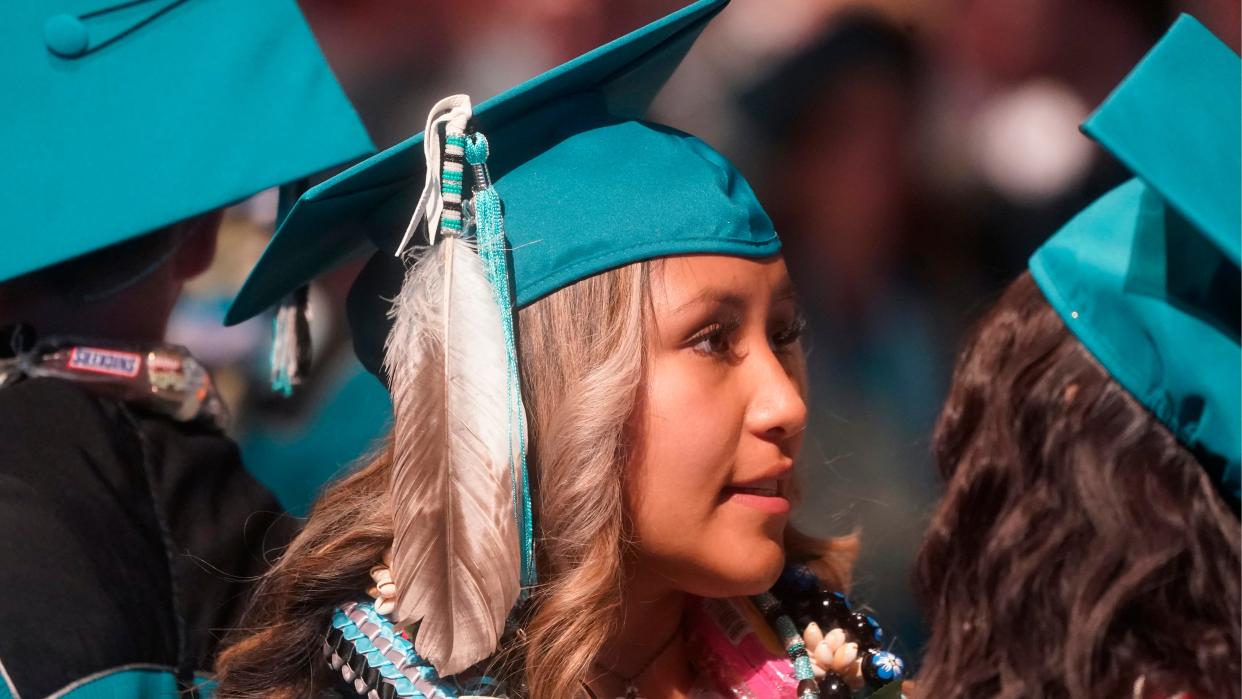Guest: Students deserve the right to wear tribal regalia at graduation

After Senate Bill 429 passed both chambers with all but one vote, Gov. Kevin Stitt chose to ignore the will of the Legislature and vetoed the bill on May 1. This bipartisan bill would have ensured that Indigenous students could wear tribal regalia to high school and college graduations across the state.
After generations of erasure and forced assimilation through boarding schools, Indigenous students are still being denied the right to celebrate and embrace their cultural heritage during graduation. From stories of diploma denials and students having their eagle plume ripped from their graduation caps, Indigenous students are being stripped of their cultural and religious heritage during one of the most pivotal moments in their lives. Gov. Stitt had a chance to support Indigenous students and families, but instead went against the wishes of his own Legislature.
In response to the countless students who have faced an uphill battle to wear their tribal regalia at school graduations, the ACLU of Oklahoma worked with lawmakers Rep. Trey Caldwell (R-Lawton) and Sen. John Michael Montgomery (R-Lawton), to write SB 429. Oklahoma would join 11 other states that have laws upholding the rights of Indigenous students.
Celebrations do not always come in the form of a suit and tie. Regalia includes a broad range of clothing items and accessories, including caps, beadwork, eagle plumes, arrowheads or moccasins. For many students, wearing these items makes them feel connected to their ancestry during one of the most important moments in their lives. It may also reflect the community that helped them be able to walk across the stage. Some students feel graduation cannot be properly celebrated without wearing ceremonial dress.
At least nine Oklahoma students have been denied the chance to wear traditional dress since 2015. Many schools deem that it would violate their dress code and claim that it would distract from the actual ceremony. These denials have been an ongoing story in our nation’s history. Schools across America have used education as a tool for assimilation, forcing thousands of students to shed any signs of their cultural and spiritual heritage.
We urge lawmakers to protect Indigenous students and override the governor’s veto before the end of legislative session. Indigenous stories are important. Students have the right to celebrate their graduation while remaining true to their community. We will continue to fight for Indigenous students with or without Gov. Stitt.
If passed, SB 429 will not be effective until July 1, 2023. This is after many high school students’ graduation ceremonies this year. Because of this, students may still face denial by school boards. Students still have rights for this upcoming graduation. If you are an Indigenous student and would like to wear tribal regalia at graduation, you can view our "know your rights" page on tribal regalia.
If you experience any pushback from school boards for wearing your tribal regalia, please contact our office at intake@acluok.org.

Cindy Nguyen is the policy director for the ACLU of Oklahoma.
This article originally appeared on Oklahoman: Guest: Students deserve the right to wear tribal regalia at graduation

